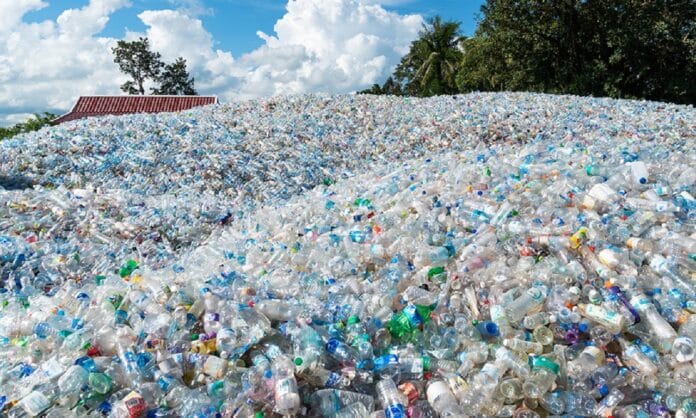Polyethylene terephthalate (PET) waste causes significant environmental damage, which can be minimized by reusing it in clay soil stabilization. Various polymers have been shown to lower hydraulic conductivity and increase shear strength in clays.
For many years, unrecycled plastic bottles have been dumped in landfills. Now, owing to a new UBC Okanagan study, those bottles may have a second life in the landfill, helping to stabilize its dirt walls.
Plastic bottles and textiles are becoming a significant problem for landfills worldwide. With approximately a hundred million metric tonnes of polyethylene terephthalate (PET) generated annually, unrecycled plastic bottles and textiles are a big issue for landfills globally.
Doctoral student Alok Chandra said, “One way we can manage plastic waste is through integrating it into geotechnical construction, By finding new ways to use these discarded plastics, we can divert them from landfills and use them to stabilize cover materials within landfills.”
Researchers at the University of British Columbia Okanagan have discovered a new approach for incorporating PET trash into clay soil stabilization.
Dr. Siddiqua said, “Due to its nontoxicity, low biodegradability, and accessibility, it shows considerable potential for use in landfill designs. However, a considerable amount of research is still required. This not only solves the solid waste problem but also increases the economic value of waste and encourages its re-circulation back from already polluted lands and oceans.”
PET waste is potentially used in landfill designs due to its nontoxicity, poor biodegradability, and accessibility.
According to the new study, the repurposed material thickens soil. It acts as a water-resistant barrier, keeping contaminants such as lead from exiting the landfill. However, more research is required before PET waste is included in landfill soil stabilization management.
The study was funded by the Natural Sciences and Engineering Research Council of Canada Discovery Grants Programme.
Journal Reference:
- Chandra A, Siddiqua S.etal. Sustainable utilization of chemically depolymerized polyethylene terephthalate (PET) waste to enhance sand-bentonite clay liners. Waste Management. DOI: 10.1016/j.wasman.2023.04.030
